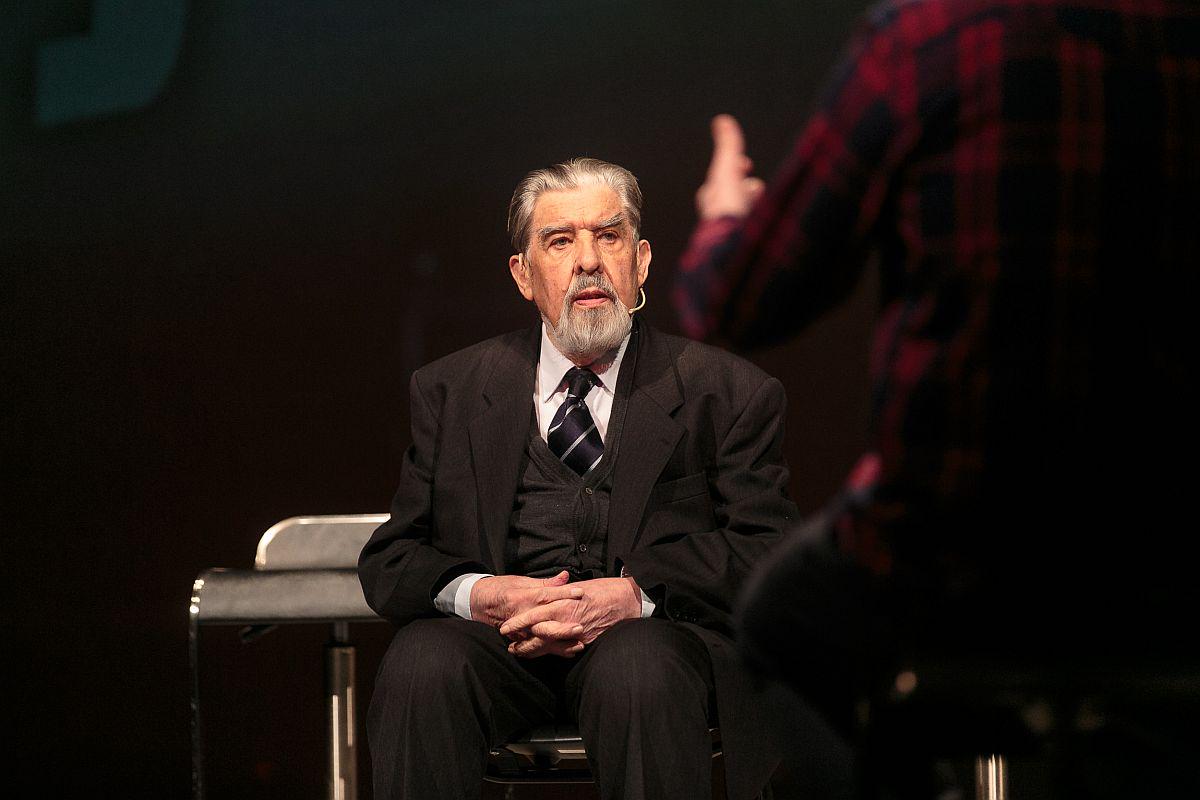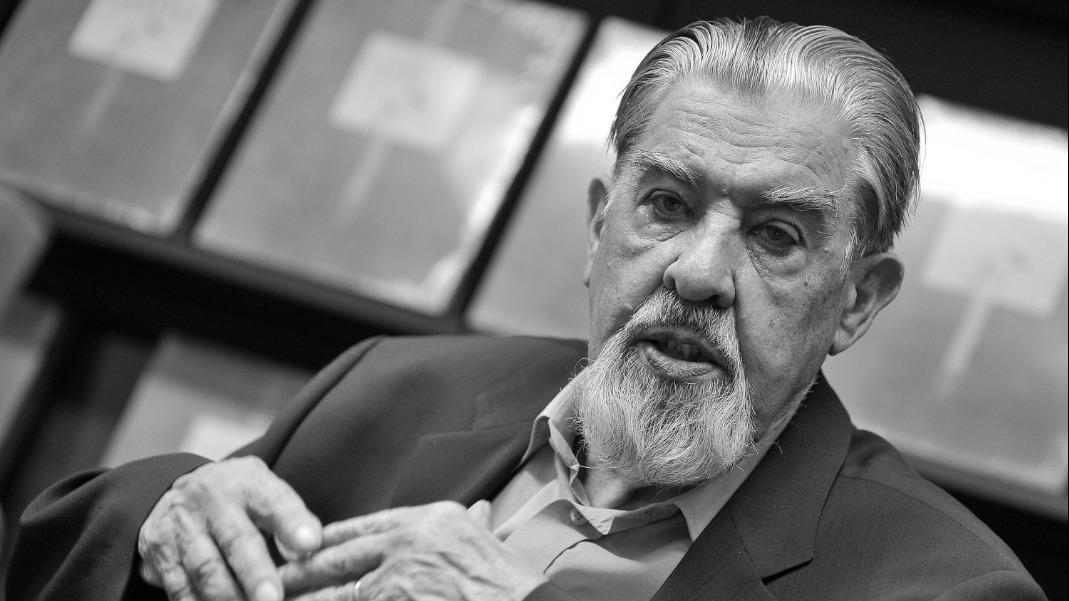
He has left us with a remarkable poetic ouevre. He was the last living author from the legendary poetry quartet who published a pioneering collection called Pesmi štirih (Poems of the Four) in 1953.
Love poetry
The majority of his literary opus comprises poetry, where his main theme was always love. He believed that through the metaphor of love he could speak of anything – his relationship to life, his philosophy, his social interactions, his connection with society and with the time we live in. He also depicted the intensity of the Karst landscape, where he spent his childhood. His poems were always full of emotion.
His first poems were published in war-time. "By writing the poems during the war, I was looking for a balance in myself. I could still draw values and meaning from poetry, unlike political conflicts," Zlobec explained. In 1953, he published a breakthrough intimate poetry collection called Pesmi štirih with co-authors Tone Pavček, Kajetan Kovič and Janez Menart. The collection cut into the then poetic orientation, going from war collective to individual human emotions, and has undergone a series of reprints to this day,.
His poetry consists of about 30 collections. He has also published two novels, several books of essays and articles, and many of his works have been translated into foreign languages.
"You need to know what you are and what you are like"
Speaking on poetry and poets, he once said that poets do not offer the truth to philosophers, but they open up questions of the people who are seeking the truth. "Everybody needs to find it on their own. You need to know what you are and what you are like."
Zlobec also translated several classical and modern works of Italian literature into Slovenian, including Dante Alighieri, Leopardi, Carducci and Quasimodo, and he also translated from Serbo-Croatian. He received several awards for his work, both for his own poetry translated into Italian as well as for translating and spreading the neighbouring culture and art in Slovenia and vice versa.


































































